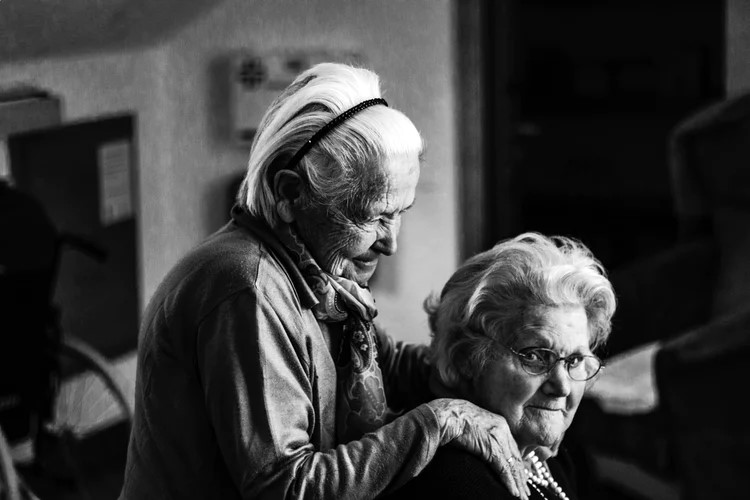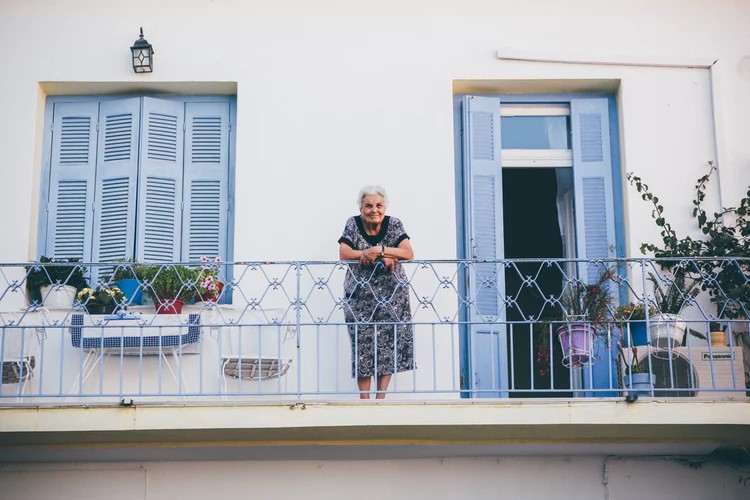Age in Place: Home Health Care Services Can Improve Life for Aging Parents
How Senior Home Care Could Make a Huge Difference to the Lives of Thousands of Families in Australia
Written by Stannah

Home health care services can improve life for your aging parents. It may not sound like rocket science but is an option that is often not considered. From help with the shopping to daily home visits, there are many options out there that could be the solution you’re looking for. We can’t always be there to help with our aging parents’ needs. And even if we can, can we provide the services they need without making huge sacrifices in our own lives?
In 2015, over 1 in 8 Australians (Care Australia) were estimated to be providing informal care. These informal caregivers face difficulties from loss of income to decline of physical and mental health. Hiring professional help could bridge that gap. It could even be the perfect solution for your parents’ needs so that they can age in place in safety and comfort. Take care of them by taking care of yourself too, so that you can all benefit from your parents’ longer lives. Asking for help isn’t always easy, but imagine the difference it could make to all your lives! In this blog post we’re going to talk about some ways in which home health care services could benefit you and your loved ones, making life that little bit easier.
Table of contents
What is Aging in Place?
Are you a non-professional Caregiver?
Why might you need the help of a Professional Caregiver?
How can you find the right Professional Caregiver to suit your loved one’s needs?

What is Aging in Place?
Aging in place is a hot topic right now. The world’s population is aging. We need to start considering how the older generation is going to be cared for as they age. How can we help them get the most out of life? Compared to a few decades ago the extra years we are living are predominantly healthy. On average, people now have 10 extra healthy years to make the most of, and disability-free life expectancy is also going up. To age in place is to live in the place of your choice until you are no longer able to do so. This means for that extra healthy time, our elderly loved ones can carry on living life to the full.
But what happens when your elderly parents are no longer able keep living in the place of their choice? This might be because cooking has become too much of a chore. Housekeeping might be that little bit too much. Getting in and out of the shower is no longer possible. The thing is, these factors don’t mean they have to move out. What does need to happen is a change in perception. Think of what they can do … with a little bit of help! Having someone there to help could make all the difference. It might mean they can stay in their home safely and comfortably for that much longer.
This change of perception might be the key to allowing them to age in their own home, which in itself brings many advantages. First, they’re still independent. They’re in their own space, with their privacy and all their things surrounding them. Staying in their own home means continuing to live their life as they always have done. They can stay in their local community, whatever this might mean to them. It could be shopping at their local store or saying good morning to their neighbours, but being surrounded by familiar, caring people can only do good. In addition, aging in place provides more opportunities for an active life – even the smallest things can make the biggest difference – things like sitting out in the garden for a few minutes every day might make all the difference to their overall health.

Are you a non-professional Caregiver?
According to Care Australia, over 2.8 million people in Australia provide some form of care to relatives or friends. Out of these, Senior care receivers represent the highest segment of care receivers. It’s heart-warming to see so many people caring for others, but if you’re an informal carer, are you taking enough care of yourself?
There is a lot of talk about the ‘sandwich generation’, people who are caring for their elderly parents while still raising their own children. These people feel “squeezed”. Financial stress or the stress of balancing their many responsibilities all gets a bit too much. There are just not enough hours in the day for you to do everything, and your personal life may be suffering for it.
As a result of their caregiving work, informal carers are at a high risk of suffering from emotional difficulties. These emotional difficulties could range from depression to stress, and social isolation to lack of work-life balance. You want to be there for your loved ones or aging parents, but the care you are providing may be taking its toll on your relationship. The stress you are put under may mean that you become their carer instead of their family member.

Why might you need the help of a Professional Caregiver?
Most probably because you’re tired. Simply put, caring for a loved one can take its toll on you and on your relationship. But it doesn’t have to. Think about it. You could even try using a caregiver for a bit of respite. Take a little break and take some time for yourself. You deserve it! It doesn’t have to be all at once, but you could build a relationship with a professional caregiver. Get to know them, spend time with them. You might learn a lot! Once you trust them completely, they could share the caregiving with you, leaving you that bit of time to take care of your needs too. You’ll see how much less stressed you are straight away, and this will also have a positive effect on your loved one!
They have expert knowledge about how to care for your loved one
One big difficulty non-professional caregivers have is a lack of training. Although you might know your loved one better than anyone in the world, you are not a healthcare professional. You haven’t done the training. If they need health care, they could have needs that you don’t know about. It might well take a trained professional to know exactly how best to keep your loved one safe and well. A caregiver could support you and even help you care for your loved one more effectively. This will help reduce instances of neglect, where the caregiver might not know what the patient needs, and might not understand how they can help them best.
If you are not a caregiver, but have started noticing your parents struggling, a professional caregiver could give you that piece of mind you are looking for. They might just need a bit of help with the shopping or with the housework. Or your loved one might be having trouble maintaining personal hygiene or caring for themselves. They might not feel like they need help, but if you point it out to them, sensitively and without pressuring them, they could end up seeing that there is in fact a problem. The care, compassion and consideration of a care giver might be exactly what your loved one needs.

If you or your loved one feels apprehensive about someone else coming into their home, you can always call a healthcare service to see how they can help you. You could meet them yourself, and only when you are completely comfortable would you ever let them into your home. See what services they could offer you, there might even be ones you have never heard of!
How can you find the right Professional Caregiver to suit your loved one’s needs?
Talk to your loved one about it. If you are honest with them, they will most likely understand and support you. Make sure you talk about their plans for the future. Listen to them, and make sure you understand what they want. But don’t be afraid to make suggestions, as long as you are not pressuring them. Many care services will walk you through creating an action plan for having this conversation with your parents, dealing with questions siblings may have and creating a plan, together, for your aging parents’ healthcare.
It is important to really research what a homecare provider could offer, and talk to lots of different homecare providers and lots of people within each organisation. It’s worth finding someone who is just right to care for your loved one! Always ask for references to make sure they have the right experience and training, and you’ll be sure to find the perfect fit. It’s also handy to work out what you are looking for, to streamline your search.
There are many, many options out there that could help your loved one to live in their own home in safety and comfort. And the comfort of being at home could make all the difference to their overall health.
Further Reading
The economic value of informal care in Australia in 2015. 2015. Care Australia. Deloitte Access Economics Pty Ltd. Retrieved from: http://www.carersaustralia.com.au/storage/access-economics-report-2015.pdf
